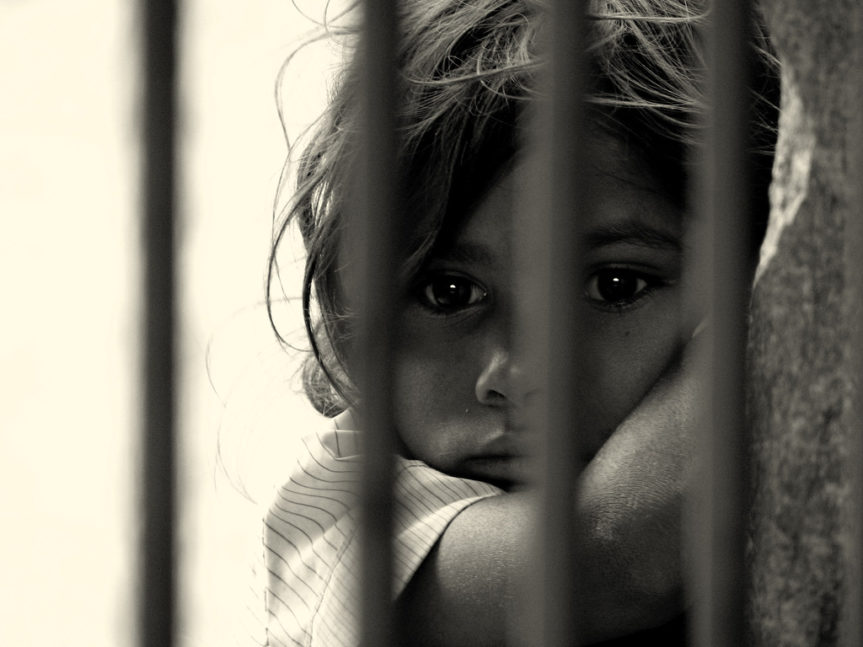Worst person alive might go to former judge Mark Ciavarella, the Pennsylvania judge who sent thousands of kids to private juvenile jails for minor offenses and received kickbacks for it, ruining and arguably ending young lives.
In California we have our own scandal, where foster kids are over medicated by doctors with conflicts of interest, serving as spokespeople for pharmaceutical companies and, earning millions in fees for clinical trials. Sadly, while the prescription practices seem unethical, are downright harmful to kids, and the amount of medication has been called negligent on its face in many cases—it’s completely legal.
In both cases we see the intrusion of private profits into public agencies and the most vulnerable children. This is a real. And while we hear folks carping in Oakland about Steph curry visiting schools and “selling our children” I would hope that we can focus on the real criminals and actually start to listen to the real victims.
Kids for Cash in Pennsylvania
Let me recap, first the blatant burn in hell worthy story, detailed in the new movie, Kids for Cash and taken from the Daily News,
Hillary Transue, 14, created a fake, humorous Myspace page about her school’s vice principal.
Justin Bodnar, 12, cursed at another student’s mother.
Ed Kenzakoski, 17, did nothing at all.
It didn’t matter.
They were brought before Judge Mark A. Ciavarella and, without warning or the chance to offer a defense, found themselves pronounced guilty, shackled and sentenced to months of detention in a cockroach-infested jail.
They were trapped in the juvenile justice system for years, robbing most of them of their entire high-school experience.
Judge Ciavarella, who sentenced around 3,000 children in a similar manner, was later sentenced himself to 28 years in prison for financial crimes related to his acceptance of $2.2 million as a finder’s fee for the construction of a for-profit facility in which to house these so-called delinquents.
This is so dirty. I really never would wish for someone to be assaulted in prison, but I understand those who would cheer for that in this case.
California’s Scandalous Treatment of Foster Children
Less obvious though potentially equally damaging is California’s own scandal highlighted by the Mercury News, where many foster kids’ medications teeter between negligence and exploitation.
In case you aren’t familiar with the issue, many children who are wards of the state are drugged as a way to control behavior. According to a recent study nearly 1 in 4 adolescents in California foster care received psychotropic medication, often to control their behavior — not address the serious mental illnesses that many of the drugs were approved to treat.
I experienced this working in the system, while some kids did benefit from meds, many more were just dulled by them, and there wasn’t an effort to really get the right dosage or right drug.
Let’s take a look at the report
A mere 10 percent of the state’s highest prescribers were responsible about 50 percent of the time when a foster child received an antipsychotic, the riskiest class of what are known as psychotropic drugs — with some of the most harmful side effects. ..
Many of the highest prescribers stand out for other practices that raise questions about their judgment or objectivity: A psychiatrist who oversees treatment at a Riverside County group home for troubled children is a self-proclaimed “spokesperson for pharmaceutical companies.” A doctor training psychiatry residents at a San Diego children’s center once prescribed an antipsychotic to an out-of-control kindergartner. And a veteran Visalia child psychiatrist touts a drug approved to treat mania and schizophrenia as an effective “sleep aid.”…
Prescribing by nonphysicians may be violating state law — “Physicians” are the only professionals who can receive authorization from the juvenile court to prescribe psychiatric drugs to foster children, but more than 600 nurse practitioners and physician assistants have prescribed the medications to thousands of patients, an apparent violation of state law that has gone wholly unnoticed.
So, foster kids, who often have too little agency, are overprescribed dangerous drugs, often in violation of the prescription rules and by people who may not even be qualified to write prescriptions. Even worse there are appear to be huge conflicts of interests—where prescribers represent drug companies and also engage the kids in clinical trials.
And this matters for kids,
Rochelle Trochtenberg, a once-heavily medicated foster youth who now serves as California ombudsperson for foster care, called the reluctance to even monitor prescribers a failure of “staggering” proportions.
“What I see in these numbers is: We don’t really treat, we use chemical restraints. We drug,” said Trochtenberg, who said doctors blithely prescribed multiple meds rather than help her recover from the deep pain and trauma of childhood abuse.
“Medications are so overused — and so significantly — that it’s outrageous there’s such a lack of leadership in holding doctors accountable, and holding the system accountable.”
Real villains and real victims
We don’t have to look far to see kids being abused. It is usually our most vulnerable children, those who may not have effective advocates and struggle to advocate for themselves. Thankfully there is new legislation to help address the foster child medication. But we will need more. And laws are only as effective of their enforcement.
So, as the school year begins, and the rhetoric starts to heat up in Oakland and elsewhere, we need to focus on the real villains and the real victims. So much time, and so many words are spent boxing shadows, in elite arguments, and over trivial matters like a school visit by a basketball player, when right in front of our eyes (if we looked and listened) our most vulnerable children are being condemned. And with all the divisions there are a lot of things we could work together on that actually matter.
Children need us.

